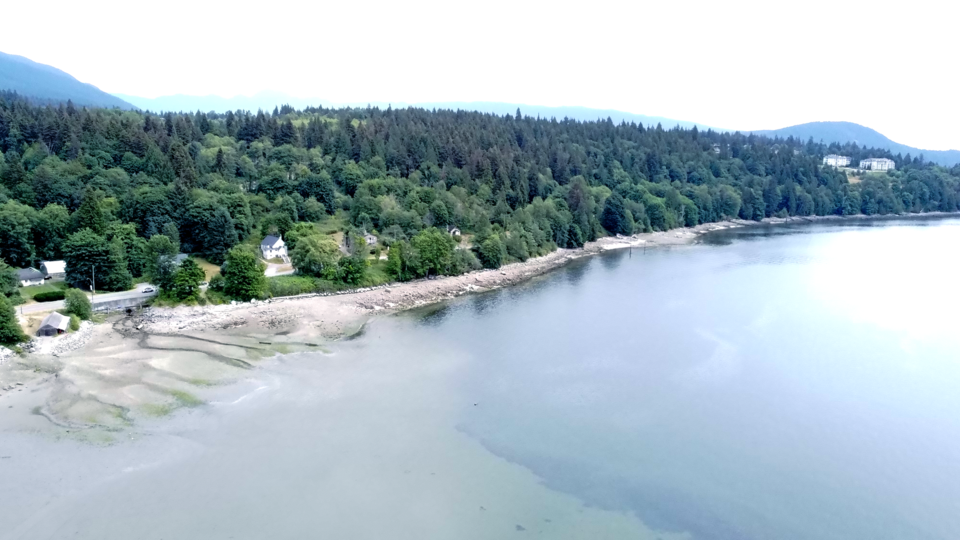Tsleil-Waututh Nation Chief Jennifer Thomas grew up on the shorelines of Burrard Inlet, going clam digging with her aunt and searching for crabs.
She remembers long summer days playing along the log booms. She and her cousins were “out there all day, every day.”
“It was the best playground for us growing up,” she said.
But that was 40 years ago.
“In my lifetime, that is not possible anymore,” Thomas said. “The children within our Tsleil-Waututh community are not able to enjoy growing up in the inlet the same way that I was able to.
“In one generation, things have shifted.”
Her hope is that “that will soon change” after an “important step toward restoring Tsleil-Waututh's rightful governance role in Burrard Inlet” was made with the signing of a new stewardship agreement.
On Aug. 5, Thomas and Carolyn Bennett, minister of crown-Indigenous relations, along with three other federal ministers, signed the Burrard Inlet Environmental Science and Stewardship Agreement.
As part of the agreement, a joint Tsleil-Waututh – Crown Burrard Inlet Environmental Science and Stewardship Secretariat will be created to co-ordinate stewardship activities, scientific research and analysis in Burrard Inlet.
Thomas said it was a "significant day" for the Tsleil-Waututh community.
"This agreement supports the ongoing stewardship work that Tsleil-Waututh has been conducting since time out of mind, as part of the Nation's laws and obligations to steward the lands and waters of our territory for past, present and future generations,” she said in a release.
Back in September 2017, Canada and Tsleil-Waututh Nation signed a letter of understanding, committing to renew and strengthen the nation-to-nation relationship. A key priority of discussion was environmental assessment and stewardship.
The new agreement includes a $20-million investment over 10 years to maintain the Burrard Inlet Environmental Science and Stewardship Fund, which will be managed by the Tsleil-Waututh Nation's Treaty, Lands and Resources department.
"Tsleil-Waututh Nation Treaty, Lands and Resources department works flat out to protect the inlet from relentless industrial development on the shoreline and from contaminants in outfalls and stormwater," Thomas said.
“The work that will follow will support Tsleil-Waututh's efforts to restore the health of Burrard Inlet, to work together with others in the Burrard Inlet community, and to strengthen and maintain our communities' connections to the water and life of the territory."
Gabriel George, director of Tsleil-Waututh's Treaty, Lands and Resources, said for decades, the department has been undertaking important scientific and environmental restoration work, but has been “hindered by piecemeal, short-term funding opportunities focused on priorities set by others.”
“This long-term, secure funding will allow our department to plan comprehensive, multi-year work based on Tsleil-Waututh priorities and perspectives,” he said in a release.
“This includes monitoring and restoring water quality, enhancing fish and shellfish habitat, supporting community access to their ancestral waters, and in turn bringing back the ecosystems of Burrard Inlet."
He said the secretariat will grow working relationships with all levels of Canadian government and other entities working on the inlet, adding that increased co-ordination between related science and stewardship programs will improve the quality of work being done.
“We have already seen gains from the work we do, including a return of herring and orcas to Burrard Inlet after decades-long absence," George said. "This agreement will allow us to build upon these successes with the ability to plan long-term and collaboratively.
“We're excited for what is now possible."
Carolyn Bennett, minister of crown-Indigenous relations, said with the signing of this agreement, the Government of Canada has “taken an important step on our path to reconciliation and rebuilding the relationship with the Tsleil-Waututh Nation.”
“This negotiated agreement will support the Tsleil-Waututh efforts to maintain their sacred knowledge to restore the environment on traditional territory,” she said.
“Supporting stewardship activities that will protect, conserve and enhance the ecosystem of Burrard Inlet benefits all Canadians."
Jonathan Wilkinson, minister of environment and climate change, added that First Nations make unique and invaluable contributions to the understanding of ecosystems and of the environmental challenges the country is facing.
“Tsleil-Waututh Nation is an important partner in monitoring, protecting, and restoring the health of the environment,” he said.
“This agreement is an important step towards reconciliation and is a testament to the work of all parties to find common ground to better protect lands and waters for future generations."
The federal departments of Crown-Indigenous Relations and Northern Affairs Canada, Transport Canada, Fisheries and Oceans Canada and the Canadian Coast Guard, and Environment and Climate Change Canada share responsibility for implementing the agreement with Tsleil-Waututh Nation.
Elisia Seeber is the North Shore News’ Indigenous and civic affairs reporter. This reporting beat is made possible by the .


